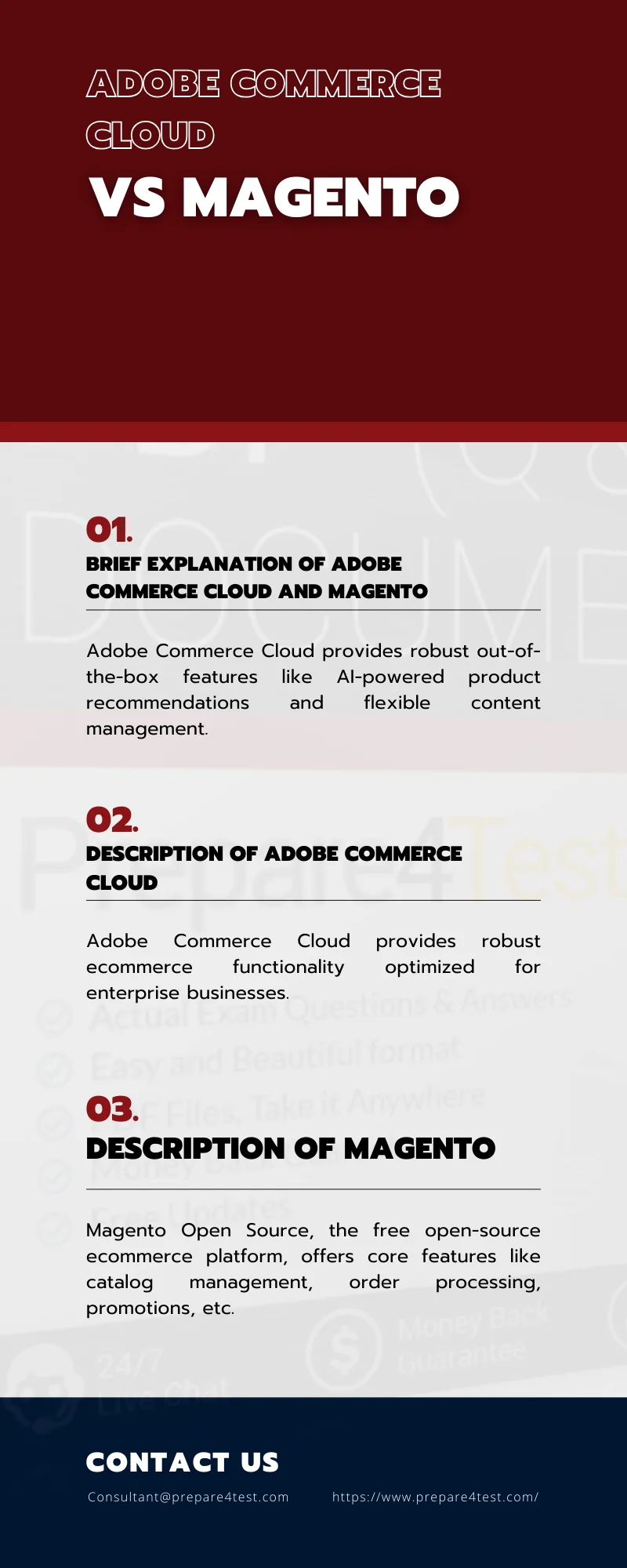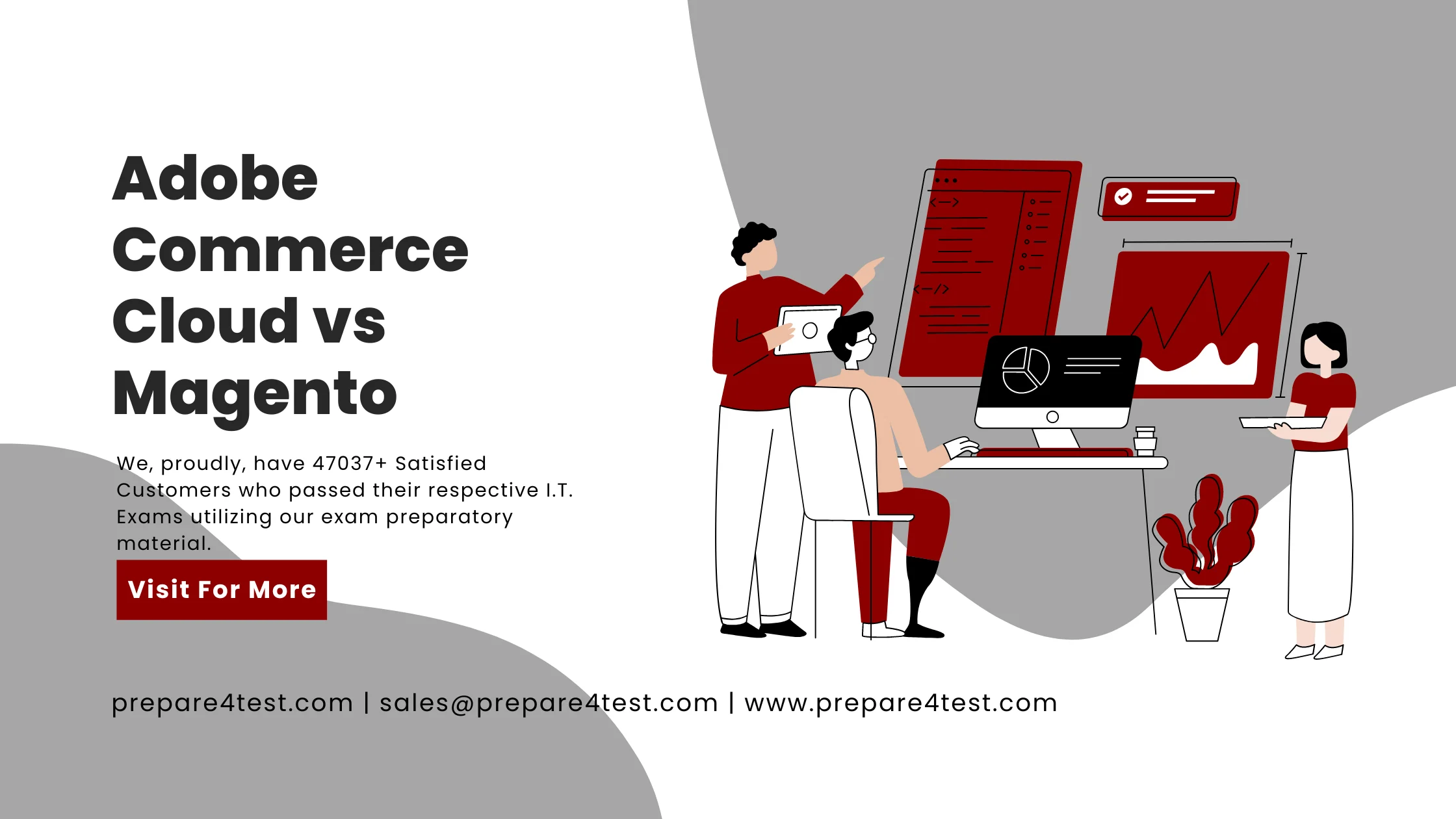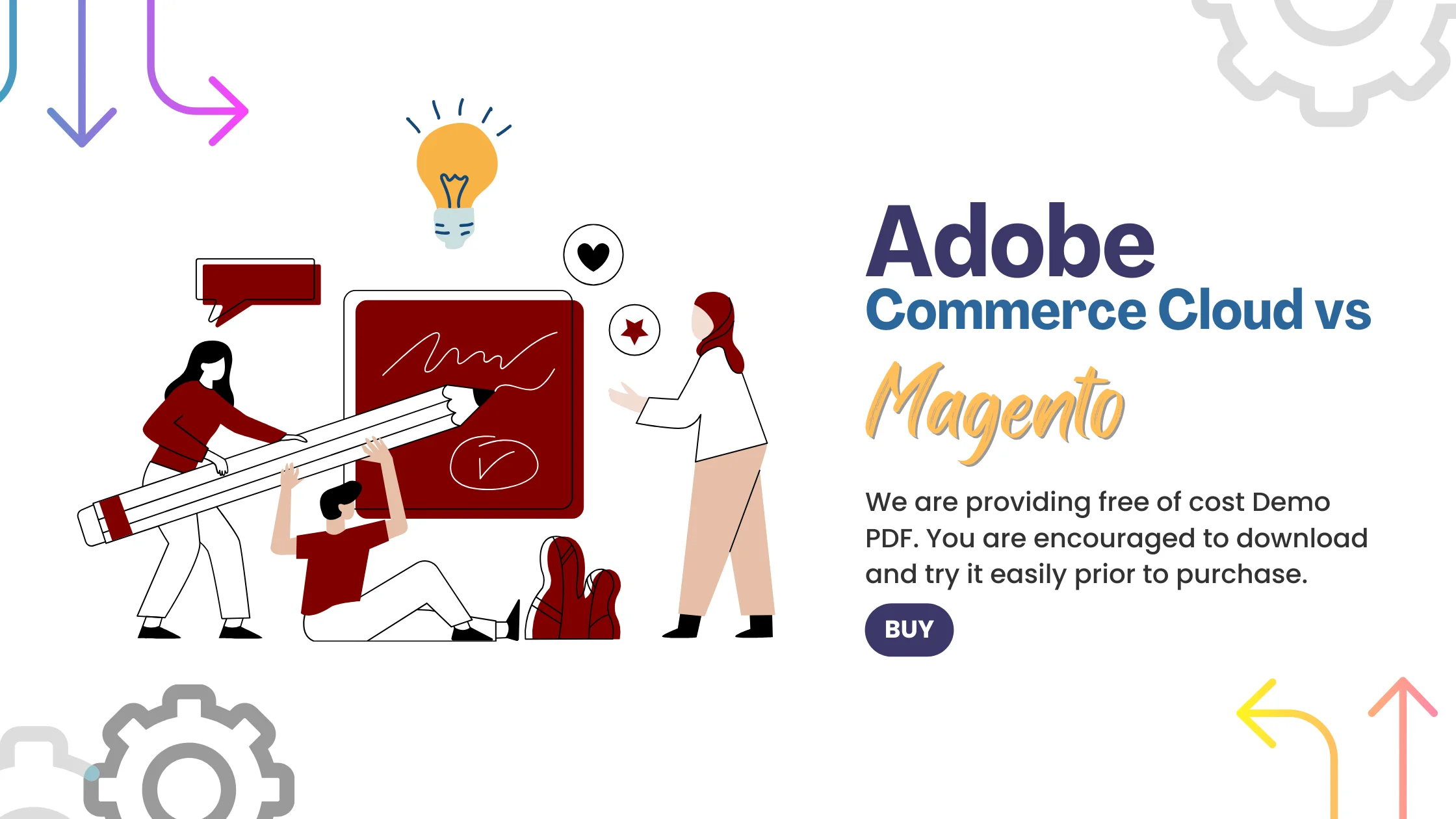
Adobe commerce cloud vs magento open source is an important consideration for ecommerce businesses looking to scale. Choosing the right platform can impact business growth, so understanding the key differences is critical.
Adobe Commerce Cloud is the enterprise edition of Magento, acquired by Adobe in 2018. While powered by Magento, Adobe Commerce Cloud offers additional features like business intelligence, B2B capabilities, and enhanced security.
Magento Open Source is the free, open-source version of Magento. It allows unlimited customization for tech-savvy users.
Brief explanation of Adobe Commerce Cloud and Magento
Adobe Commerce Cloud provides robust out-of-the-box features like AI-powered product recommendations and flexible content management. It also offers enterprise-grade security, scalability to support business growth, and 24/7 support.
Magento Open Source offers core ecommerce functionality for developers to build customized stores. It lacks some security features and scalability options that growing businesses may need.
Importance of choosing the right platform for e-commerce businesses
For small businesses with simple needs, Magento Open Source allows creating customized stores on a budget.
However, the limitations may hinder growth. Adobe Commerce Cloud is optimized to scale with advanced features to support expanding omnichannel business needs.
Carefully evaluating both platforms based on current and future business requirements is key to choosing the one that enables long-term success.
Overview of Adobe Commerce Cloud
Adobe Commerce Cloud is the enterprise-grade ecommerce platform from Adobe, adobe commerce pricing is based on business size and requirements.
Description of Adobe Commerce Cloud
Adobe Commerce Cloud provides robust ecommerce functionality optimized for enterprise businesses. It builds upon the capabilities of the open-source Magento platform which was acquired by Adobe.
Offered on both cloud and on-premises, Adobe Commerce Cloud provides enterprise-level security, scalability and reliability. It comes with 24/7 support and managed cloud services.
Key features and functionalities
Key capabilities include business intelligence dashboards, advanced merchandising tools, B2B ecommerce features, flexible content management, and AI-powered recommendations.
It also provides enterprise-level security, global CDN for fast performance, and integration with other Adobe products.
Benefits of using Adobe Commerce Cloud
Adobe Commerce Cloud enables businesses to provide seamless omnichannel experiences. With robust out-of-the-box features, it simplifies managing complex ecommerce requirements at scale.
The enterprise-grade security, reliability and scalability ensure businesses can support growth without disruptions. 24/7 support and managed cloud services provide confidence for brands to focus on their core operations.
Overview of Magento

Adobe commerce magento open source serves as the core for Adobe Commerce Cloud. While Adobe Commerce builds on Magento’s functionality, key differences exist.
Description of Magento
Magento Open Source, the free open-source ecommerce platform, offers core features like catalog management, order processing, promotions, etc. It provides developers flexibility to customize stores.
However, the open-source edition lacks some advanced capabilities and scalability offered in the paid Adobe Commerce Cloud.
Key features and functionalities
With Magento Open Source, developers can tap into an ecosystem of extensions to add capabilities like dropshipping, subscriptions, and more.
However, out-of-the-box it lacks built-in features like business intelligence, B2B ecommerce, or content staging that Adobe Commerce Cloud provides.
Benefits of using Magento
For small businesses with simple needs, Magento Open Source allows creating customized online stores affordably. Developers can shape it to their requirements.
However, growing businesses may outgrow Open Source’s capabilities over time. Adobe Commerce Cloud offers enterprise-grade security, reliability and scalability to support complex ecommerce needs at scale.
So evaluating both platforms based on current and future requirements is key to determine the best fit.
Comparison of Adobe Commerce Cloud and Magento

Magento cloud commerce capabilities differ across its editions. While Magento Open Source offers core functionalities, Adobe Commerce Cloud provides advanced enterprise-grade features.
Pricing models and costs
Magento Open Source is free to download and use. Costs involve hosting, development and maintenance. Adobe Commerce pricing follows tiered licensing based on business revenues, transactions, SKUs etc. Cloud plans add further costs.
Customization options and flexibility
Magento Open Source enables unlimited customizations for developers. Adobe Commerce also provides flexibility, but cloud plans limit some server-level personalization.
Scalability and performance
Magento Open Source can scale with extensions and infrastructure enhancements. But out-of-the-box, Adobe Commerce Cloud offers superior enterprise-grade scalability and performance optimization including CDNs.
Integration capabilities
Both platforms provide integration capabilities with third-party systems. However, Adobe Commerce Cloud includes more built-in integrations with CRM, ERP, payment systems etc.
User interface and ease of use
Magento Open Source offers a developer-centric interface requiring customization. Adobe Commerce Cloud provides more user-friendly interfaces for merchandising, content creation etc.
Support and community resources
Magento boasts a thriving open-source community. But Adobe Commerce Cloud provides official 24/7 technical support and expert services which are vital for enterprise usage.
Case studies and success stories
Choosing between adobe commerce cloud vs magento depends on business needs and growth plans. Real-world examples showcase how both serve ecommerce brands.
Examples of successful businesses using Adobe Commerce Cloud
The advanced capabilities of Adobe Commerce Cloud help enterprise brands scale complex operations. For instance, Office Depot leverages its order management and merchandising tools to provide omnichannel experiences. The cloud platform also enables them to quickly test and optimize promotions.
Another example is Bodybuilding.com that powers its fitness supplement business with Adobe Commerce’s flexibility, security and scalability. The rich CMS empowers their content strategy and marketing campaigns.
Examples of successful businesses using Magento
For small businesses, Magento Open Source allows building customized stores affordably. Australian retailer Princess Polly used it to bootstrap their fashion business. They tapped into the vibrant developer community to shape the platform to their needs.
As they grew into a global brand, scaling limitations led them to graduate to Adobe Commerce Cloud. The enterprise-grade security, CDN performance, and reliability help them manage expansion.
Conclusion
When evaluating adobe commerce cloud vs magento, the needs of each unique business should drive the decision. While both platforms offer robust ecommerce capabilities, key differences in features, scalability and total cost of ownership exist.
For small businesses starting their ecommerce journey, Magento Open Source provides an affordable way to launch online stores with endless customization.
Tapping into the vast community resources helps offset limited out-of-the-box capabilities.
However, as brands scale, Magento Open Source’s security, hosting and support limitations may hinder growth.
Transitioning platforms also risks business disruptions.
Adobe Commerce Cloud eliminates these barriers with enterprise-grade security, reliability and optimization. The licensing costs give access to 24/7 support and cloud infrastructure.
Advanced built-in features like AI recommendations and B2B portals enable innovation.
So Adobe Commerce Cloud simplifies managing long-term complex ecommerce growth. But for simple stores, Magento Open Source offers customization flexibility.
Evaluating both against current and future needs clears the path to choose the optimal platform.
Citations:
https://business.adobe.com/resources/experience-magento-compare.html



